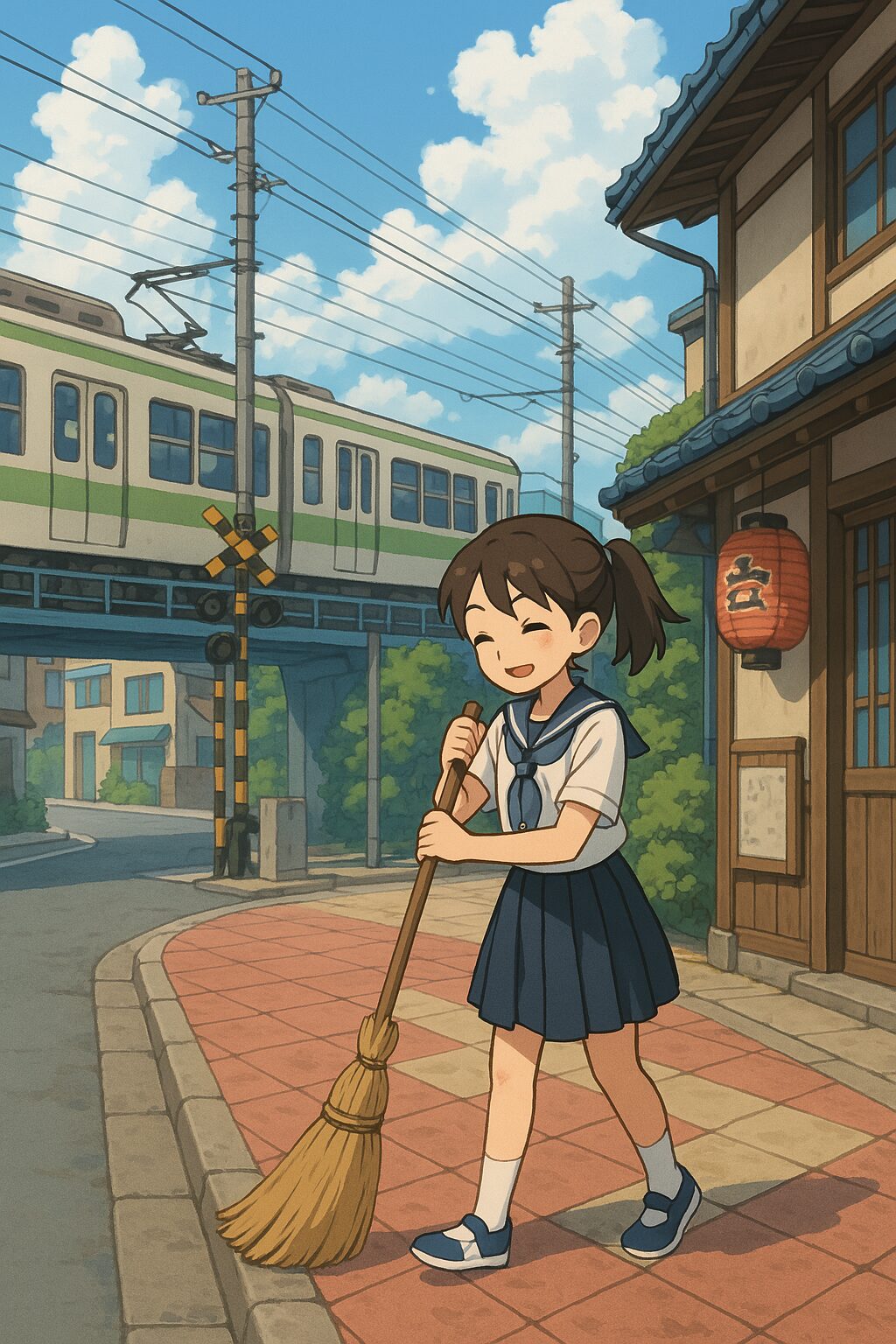Visitors often expect temples, sushi, and cherry blossoms when they arrive in Japan. But what truly leaves a lasting impression isn’t just the sights—it’s the intricate cultural values subtly present in everyday life. This post dives into five ordinary yet surprisingly meaningful aspects of Japanese daily life that reflect its deep philosophy of respect, order, and harmony.
- ⏱️ 1. Punctuality Isn’t Just Polite—It’s a Way of Life
- 🧼 2. Cleanliness in Public Spaces Feels… Impossible
- 🙇 3. Bowing Isn’t a Formality—It’s Everyday Courtesy
- 🔇 4. A Culture of Quiet Consideration
- 🧹 5. Schoolchildren Clean Their Classrooms—As Part of Education
- ✨ Final Reflection: Small Acts, Deep Philosophy
⏱️ 1. Punctuality Isn’t Just Polite—It’s a Way of Life
In Japan, trains often arrive not just on time, but to the exact minute—sometimes down to the second. If a train is delayed even by one minute, the conductor announces an apology. This punctuality is more than logistical precision; it’s a cultural expression of respect for others’ time and shared societal order.
🔍 What visitors notice: Meeting someone at 10:00 means exactly that—10:00, not 10:05.
📎 Related reading:
🧼 2. Cleanliness in Public Spaces Feels… Impossible
Japanese streets, stations, and public parks are remarkably clean—often without a single trash can in sight. The secret? People take their trash home. Cleanliness is upheld through self-responsibility and collective mindfulness rather than enforcement.
💡 Cultural note: “Clean spaces create clean minds” is an unwritten ethos deeply rooted in Japanese thought.
📎 Related reading:
🙇 3. Bowing Isn’t a Formality—It’s Everyday Courtesy
From greeting coworkers to saying thank you, bowing is used naturally and frequently. It’s a gesture of humility and acknowledgment rather than status. Even automated machines at train stations “bow” through animated screens—a charming touch that visitors love.
💬 A tourist once asked, “Why is the vending machine bowing at me?” That says it all.
📎 Related reading:
🔇 4. A Culture of Quiet Consideration
On public transport, silence reigns. People avoid loud conversations, and phone calls are generally not taken. It’s not just about rules—it’s about not disturbing others in shared spaces. Even in densely packed trains, a peaceful quiet persists.
🧠 Philosophical angle: Respecting others’ peace is seen as an extension of empathy and social harmony.
📎 Related reading:
🧹 5. Schoolchildren Clean Their Classrooms—As Part of Education
Perhaps the most surprising practice to many overseas visitors is seeing young students sweep floors, scrub toilets, and tidy their classrooms. In Japan, cleaning isn’t outsourced—it’s embedded in daily school life.
🌱 Why? The roots lie in samu, a Zen Buddhist concept where simple labor is seen as spiritual discipline. Students learn gratitude, accountability, and how to care for shared spaces.
💬 A visiting American teacher said: “Watching students clean their classroom with pride made me rethink what education really means.”
✨ Final Reflection: Small Acts, Deep Philosophy
These details—punctuality, cleanliness, courtesy, silence, and communal responsibility—may seem trivial at first glance. But they’re layered with meaning and represent Japan’s unique approach to living respectfully with others. It’s a country where ordinary moments shine with intentionality.
The surprise many travelers feel quickly becomes admiration. What starts as culture shock often deepens into cultural appreciation.



コメント